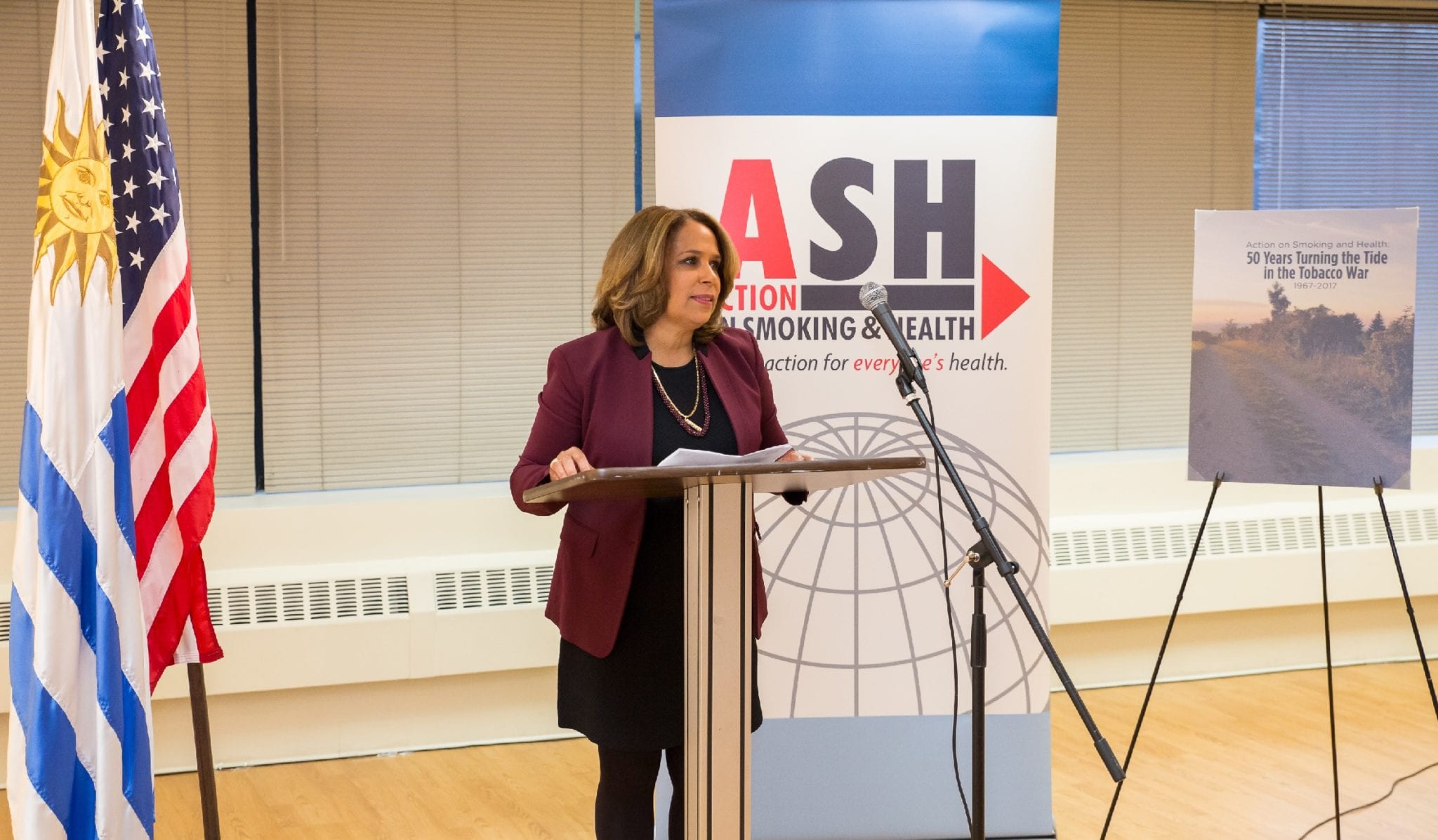
Friends, Deputy Chief Baluga: It is an honor to be asked to say a few words on the occasion of ASH’s 50th Anniversary.
Over the past 50 years, ASH has played a significant role in the war on smoking, from its beginnings, with John Banzhaf’s FCC petition leading to free time for anti-smoking messages, to its international efforts today, including one of my favorites, the criminal liability project. ASH always has been a leader, both domestically and globally.
ASH is not an organization that ever says “never,” and its successes have brought about evolution—leading to bolder action. As the President of Uruguay has stated, “In the world, 8 million people die each year from smoking tobacco. This is mass murder.” It is a fact that tobacco products kill more people than alcohol, AIDS, car accidents, illegal drugs, murders and suicides combined. Criminal liability for the industry and its executives will happen—I’m betting on ASH.
In recognition of its 50th Anniversary, ASH issued an important report: “Action on Smoking and Health: 50 years Turning the Tide in the Tobacco War, 1967-2017,” demonstrating the impact ASH has had through 5 decades of work fighting for health against big tobacco, confronting the tobacco epidemic, and laying out a vision forward. Yes, it really is a war, and I know a little bit about the trenches and foxholes in this war—and there is no finer battle buddy to have in those trenches and foxholes than ASH.
I have observed up close and been a small part of some of the work that ASH has been doing, and I continue to be impressed. There isn’t any other organization that does what ASH does, and we are fortunate to have them. Whether it is holding the tobacco industry accountable for human rights violations or assisting advocates around the world, it is an organization making a difference. I look forward to the “pivot” from a “tobacco control” organization to an organization dedicated to zero deaths from tobacco. Moving on to year 51 and beyond, ASH will be the catalyst for a new discussion to rethink cigarette sales and ponder whether the way that cigarettes are sold today is appropriate in the 21st century.
Laurent said it best: “Given all we know about cigarettes, one cannot help but wonder why such a lethal product can be so easily purchased almost everywhere in the world in the 21st century. Is it appropriate for large multinational corporations to continue to profit while pushing an inherently defective product on the global market? How will we be judged by future generations if cigarettes are still pervasive by the end of the century?”
We should all work hard to shorten the lifespan of ASH so that we see an end to tobacco use—they deserve not just our admiration, but most of all, our support.